Text
an aspect of rue & hob that really gets me is like. yes they are both beholden by duty and yes they have tied themselves so tight so that nothing can possibly get out and yes they play the game perfectly with a feeling of rot in their chests and yes they can never be understood by the worlds they’re supposed to but cannot implicitly understand and yes they can never let themselves love or be loved. but the difference is, rue can’t stand it and hob loves it. for hob, the ropes feel like ribbons.
#homer s2. he is ENTRENCHEDDDD in those hap ribbons 😔 his whole voice and aspect changing when hap gave him an order ...#bc he has a purpose! he has a calling and a leader! evrrything oa gave him! but hap got there first..m#and even that its dr PERCY that got there first. before hap ever arrived in this dimension. cast of six...#anyway oa can see the ropes and she is Straining against them. and she wants homer to see them too...#perrenial conrad post that serves so many purposes.
74 notes
·
View notes
Text


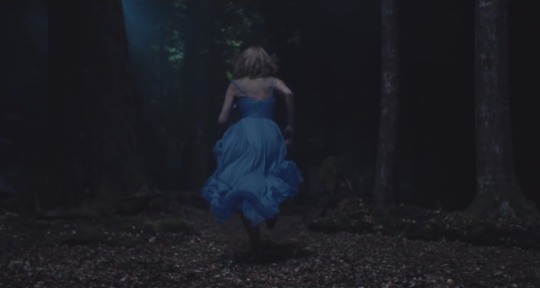

it’s a love story
6K notes
·
View notes
Photo







462 notes
·
View notes
Photo


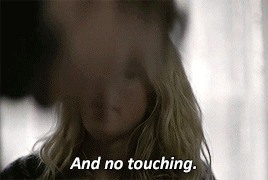

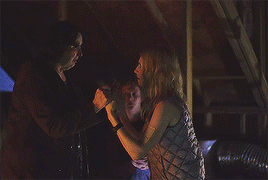

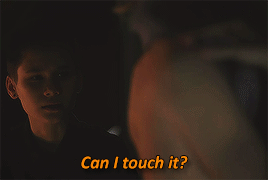
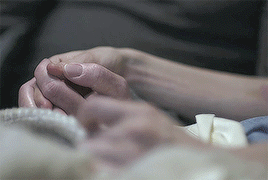


#;_______;#and then when she gets to the facility in s2 and can touch scott and rachel for the first time#.... with hands that know how now ....#the oa#im treading some real dangerous territory in tags rn . but i must look at images
2K notes
·
View notes
Photo
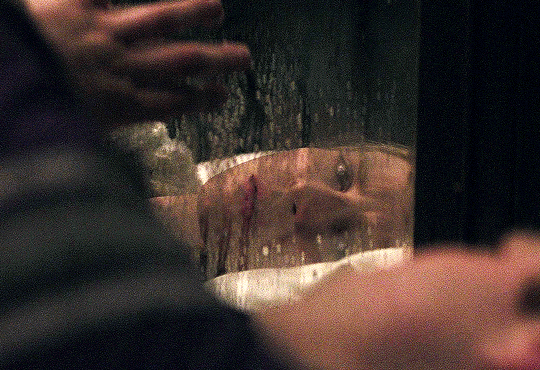

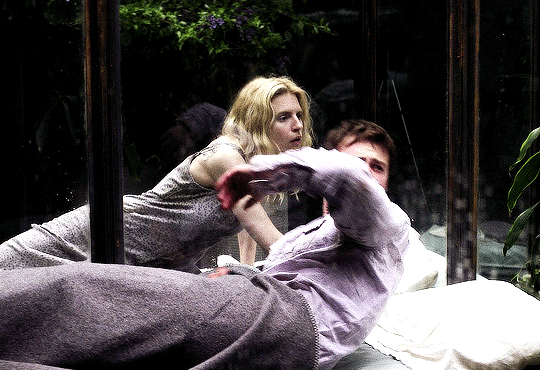
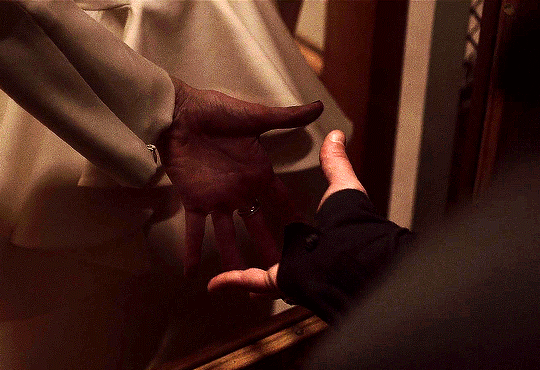
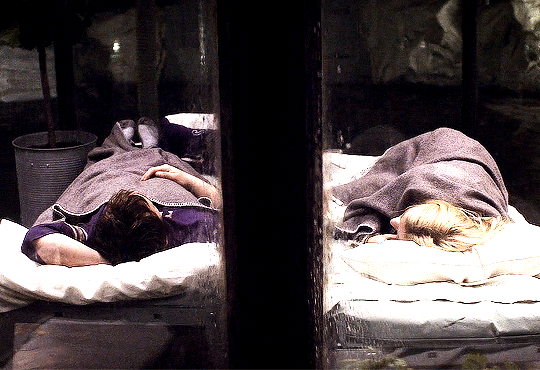
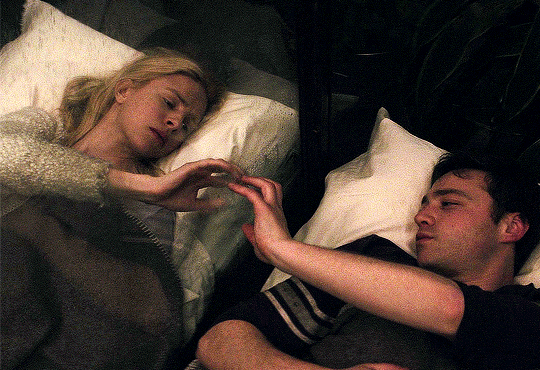

She and I were next to each other. But you couldn’t touch, because of the glass.
OA & HOMER | THE OA (2016-2019)
#oaoaoaoaoaiashaggGahhhh. when date girl said . like pyramus and thisbe . 🥺#the oa#second one . as if another self...
1K notes
·
View notes
Text
sometimes I like to pretend my tinnitus is actually the high noble whining voice of various light fixtures and I am singularly blessed to hear their voice, like when I was a kid and believed that I could hear my dogs thoughts
#i love when im into a new thing and i keep running into small parts of it that have already been in my life. like an echo#anyway the number of times this is happening with the oa would be startling but it came to me via a bestie#so i knew it would be tailored to activate me in all the craziest ways#the oa
19 notes
·
View notes
Text
Shoutout to everyone who has died and come back sluttier each time
44K notes
·
View notes
Text
harrow could do would you cheat on me if I was dead and ronan could do a lobotomy to avoid grief
#omfg . oa got cheated on after she died .#and homer lobotomy to avoid grief. everything in the world is exactly the same
5 notes
·
View notes
Photo






Izzex in every Greys Anatomy episode → 2.21 (“Superstition”)
Izzie paints a pretty picture ‘cause she likes you, you know. Okay. I’m just saying she likes you. Which is going to be hard on her. You mean, when I die?
#whenevr i make a truly insane post im always like hm whay will i reblog after that what will be next to it on my blog#and this seems fitting. LMAO#alex karev the kooky dookie that you are. you not rocking with izzy im gonna kill you in the surgical theater ass#greys#hes so intense . his eyeballs
164 notes
·
View notes
Note
bowie, what does it mean that bride is only "sort of" omegaverse?
thanks for asking, bowie. i've thought about this a lot, so allow me to clarify.
I want to start at the beginning, with ali's omegaverse fic. I'm linking one example of several, notable because it has an arranged meeting component (relevant to bride) and because she cited a johnlock omegaverse work as an inspiration for her worldbuilding (this gave me, to put it lightly, a fright). I think that's where I initially connected Ali and omegaverse early on in my interest in her work. i could see the shades of it in her first three novels, but my analysis faltered as i tried to bridge the gap between those and her fic. when i read bride, this clarified.
ali has often used emojis to describe the book on instagram: 🐺 for werewolves, 🩸 for vampires, and 🪢 for knotting. this allows for some level of euphemism in her Instagram posts, meaning she doesn't have to explicitly get into the kinkier parts of the story in public. she does also make a lot of puns on the word knot but it still feels like an in-joke - if readers want to understand what a knot is, they have to read the book. i attribute this coyness in part to the significant leap between her first three contemporary adult romance novels and this new foray into much more explicit supernatural romance, and specifically the introduction of knotting and interspecies kinks that might be unknown to the average booktoker.¹
now, to get into the actual content of bride. the book is a vampire-werewolf romance novel, where the vampire (stylized vampyre) is a woman named misery (!) and the werewolf (stylized were) is a man named lowe. lowe is also the alpha of his werewolf pack. mates are a factor in the worldbuilding; some but not all weres have them and recognizing them is scent-based. knotting happens only in sex between mates. lowe and misery's romance is framed by their arranged marriage, a political deal to ensure peace between vampyres, weres and humans.
if we refer to the original supernatural rpf kink meme prompt that is supposedly the origin of "omegaverse", there are three key elements: 1) social roles, in this case "alpha male and bitch male" which later became alphas and omegas; 2) dog-like sex, "the knot, tons of come"; and 3) mating/biologically enhanced long term monogamy.
bride has #2 for sure. it's not the full extent of their sexual dynamic, but those two elements are certainly present. it has #3, although I think this is somewhat complicated (but not exactly subverted) by it being an interspecies romance. it's technically not a biological "mating" bond in the way weres in this world understand it. instead, lowe recognizes misery as his mate by scent, and misery, unable to reciprocate biologically, chooses to define herself as Lowe's mate at the end of the story. i appreciate that this introduces an element of agency for misery, which is what i normally struggle with in soulmate stories.²
it's #1 where I get sort of tripped up. in this book, biological determinism wrt social roles as it is portrayed in most omegaverse fic³ does not exist. lowe is an alpha, but his closest confidants are "seconds," not betas, and it's more a social/political role than anything else. there are no equivalents to omegas. however. the interspecies aspect of the relationship does still introduce elements of biological determinism, ie, sexual urges that can't be controlled; physical needs like hunger literally and metaphorically standing in for sexual desire. misery is also, crucially, a social outcast to her fellow vampyres, occupying a similar role to the omega social role in many omegaverse works. I cannot deny that's a lot of similarity, but for whatever reason, ali chose to elide this particular element of the worldbuilding. my best guess for this is empowerment of misery as a character. as mentioned above, she has more agency than many damsels in supernatural romance novels. empowered heroines with their own plot, relationships and sexual desires are an important part of popular contemporary romance; often books with too weak a heroine get lanced on tiktok (as was the fate of anastasia grey, for example).
finally, i want to talk about to inspiration. ali cites the johnlock fic as a framework for her reylo fic, and she has repeatedly spoken about her longstanding love for fanfic, obviously including omegaverse. but as an informed reader of her books, I think I can actually trace some aspects of bride further back. in the press tour and marketing for bride Ali continuously brings up nalini singh, an author who has been publishing interspecies romance since 2009. the first book of that series, slave to sensation, shares a lot of DNA with bride, especially in how our main characters connect and differ from each other other.⁴ the kink meme prompt largely credited as the origin of omegaverse in fanfiction dates to 2010. other supernatural romance authors Ali has cited as influential, like kresley cole, have been publishing even longer.⁵ the original kink meme prompt was obviously hugely influential, and I am still happy to credit it with those three specifics of omegaverse. to my knowledge, none of these prior romance novels include those elements in that combination.⁶ my point here is more that omegaverse was joining an existing lineage of erotica related to interspecies/animalistic/monsterfucking sex, rather than creating an entirely new mode of erotic engagement. ali, in bride, was combining and reworking these ideas that were so evidently influential to her development as a romance writer.
personally, I believe that Ali, in bride, is participating in the longstanding tradition of creating conditions for her romance novel characters that will best facilitate hornier and hornier scenarios. just as misery lark is the vampyre collateral, a political role invented for the plot, jensen ackles was assigned the newly created role of bitch male/omega because that made the most sense for the fantasy our requester was entertaining. worldbuilding in these books serves the primary purpose of enhancing and creating scenarios for horniness, which means that often it can be somewhat loose. I certainly had a million frustrated questions for Ali while reading bride, but I had to keep reminding myself that it's not about what part of the US the story is taking place in, or the political realities of a world with three separate species-specific governments. its about hot vampyre-werewolf sex and the catharsis of enemies-to-lovers. and also how good peanut butter is. thanks for reading.
footnotes
1. i have seen many, many booktokers and tubers discuss how this was their first foray into supernatural romance, and they wouldn't have tried it if not for enjoying ali's previous books. i have a whole other post to publish about profit incentive and marketing on ali's books, which i'll hopefully remember to link here when it's done. suffice to say, enormous win for ali's team.
2. it does not, however, allow any agency for lowe; he is in his own little romance-as-horror plot wherein he is suddenly having uncontrollable physical reactions to a member of a different species, about whom he knows nothing. luckily for him he has a blood-drinking kink. yay!
3. for an excellent reading of biological essentialism in same-gender omegaverse pairings, read my friend ari's post. heterosexual omegaverse pairings do not have the distancing aspect ari discussed, but they sexualize the same dynamics that come out of sexist, bioessentialist hegemony. exploring why this is hot to straight women has been a large part of my ali related work.
4. i also read slave to sensation for research purposes. do not recommend. as discussed above, though, i think a major difference is that the dynamics in singh's books (and similar) are dated and adhere pretty strongly to bodice ripper tropes. ali is taking those ideas and translating them into a contemporary romance voice.
5. again, to be addressed in my marketing post, but i have my suspicions about these inspiration plugs being strategically picked for which authors have upcoming books to promote side-by-side with ali's. its totally possible she also read and loved them, but its hard to ignore she and nalini singh share a publisher.
5. as Lindsay Ellis fans may know, there are many popular straight omegaverse series out there, but i couldn't find any evidence that those series pre-dated the kink meme.
#hello im home from work with cramps again so what am i doing .yeah. writing essays on tumblr dot com#the formatting on this was a BITCH and if it doesnt post i will be somad#AHU
4 notes
·
View notes
Text
re: that last poll i reblogged, one of the reasons i find both mpreg & a/b/o fic kind of morbidly fascinating after many years in fandom (despite not liking either) is how these kinds of fic often function as a way of mapping the tropes and gender dynamics of cis/heterosexual romance onto (almost always cis) m/m stories without going so far as to gender-swap either character
like, this is pretty obvious with mpreg centered on cis men, which is often just the application of common pregnancy-related romance tropes to cis m/m couples (note: im excluding depictions of trans masc pregnancy from my discussion here because i just think its a separate convo with its own nuances, and because i think much of the fic im describing here generally draws from ideas about cis men & women without much consideration for transness). however its ESPECIALLY apparent if you look at common a/b/o tropes in m/m fic. namely, the fact that an a/b/o universe is generally a world in which irl gender essentialism and the resulting sexual power dynamics between (cis) men and (cis) women are able to be applied to relationships exclusively between cis men-- with one partner being dominant, often physically stronger and aggressive, and socially privileged for this (perceived or real) biological superiority, and the other partner (who is generally the one able to bear children) being sexually submissive, weaker, and thus socially disadvantaged or oppressed as a consequence.
furthermore, something EXTRA interesting to me is that in this type of fic these power dynamics are very frequently not just social constructs (the way they are in real life-- pls dont misunderstand me and think im saying women are inherently biologically submissive to men irl or something), but rather almost always depicted as a biological reality within the world of the story. this type of au (at least in m/m dominated circles) offers a way of exploring and depicting what are basically misogynistic tropes without ever naming it as misogyny or involving women at any point. and i'm not trying to make a moral judgement here--i just genuinely find it very interesting that one of the main ways that misogynistic sexual dynamics (and, frequently, the violence resulting from such dynamics) gets explored in fandom spaces is through the development of an alternate biological and social reality in which cis men experience a mirror of those power dynamics, often turned up to 11 via in-universe biological essentialism. it strikes me as a way to engage with irl misogyny and its role within relationships with a certain amount of emotional distance, for better or worse. on one hand, it might be used to explore this imbalance of power without ever needing to depict misogynistic violence happening to female characters, but on the other hand also often offers a way to engage with romantic tropes steeped in irl gender essentialism in a way that is justified within the fiction of the universe and therefore do not need to be considered as critically
now i dont think this alone justifies this trope's existence or popularity (i'm sure a large part of its popularity is people just thinking it's hot tbh, which is fine im not here to judge), and honestly i'm not interested in litigating the question of why people write or read this trope in the first place, but i AM continually fascinated by the degree to which heteronormativity is able to influence what are ostensibly depictions of queer relationships
#FINALLY FOUND IT#thank u ari. god this post is so good. am currently finishing my ali omegaverse post and this will be footnoted#AHU#not losing this one again
748 notes
·
View notes
Text
poets will literally look at a bug and be like “yeah that’s sexy”
16 notes
·
View notes
Text
5th June: A game of alphabets is played
Read the post and comment on WordPress
Read: Vol. 3, ch. 5 [41]; pp. 225–230 (“He had walked up one day” to “solitude of Donwell Abbey”).
Context
Frank makes a “blunder” regarding Mr. Perry’s carriage. Emma, Harriet, Mr. Knightley, the Randalls’ party, Miss Bates and Jane Fairfax play a game of alphabets at Hartfield. John and Isabella Knightley’s children have by this time ended their visit at Hartfield (Mr. Woodhouse “lament[s] […] over the departure of the ‘poor little boys,’” p. 227).
This occurs one “evening” (p. 225) soon after the beginning of “June” (vol. 3, ch. 5 [41]; p. 224).
A Pembroke is a small drop-leaf table commonly used for tea, dining, and writing in the Georgian period. On the “modern circular table” (p. 227), Duckworth writes: “A nice touch this, when one recalls the dubious significance that is attached both to Marianne Dashwood’s wish to give Allenham new furniture in Sense and Sensibility and to Mary Crawford’s wish to make Thornton Lacey a “modern” residence in Mansfield Park. Why a round table should merit comment is perhaps best indicated in Barchester Towers where Archdeacon Grantly says: “A round dinner-table ... is the most abominable article of furniture that ever was invented” (chap. 21). For Grantly there is “something peculiarly unorthodox” in the idea of a round table, “something democratic and parvenue” (FN 30, p. 172).
Note that this write-up contains spoilers.
Readings and Interpretations
Rank and Carriage
Frank Churchill, momentarily mistaking the source of his information, asks Mr. Weston about “‘Mr. Perry’s plan of setting up his carriage’” (p. 225). Robert Hume summarizes the economics of carriage-owning in late Georgian England thusly:
[John] Trusler opines that an income of £800 or more is necessary to support a carriage, expensive in itself and requiring horses, a coachman, fodder and stabling. The Adamses [Samuel and Sarah] say that the coachman will have to be paid 25–36 guineas per annum, plus two suits of livery and other garments (not to mention food and lodging) [appendix, p. 8]. In their view, an income of £1,000–£1,500 is the minimum on which keeping a carriage is economically sensible. (p. 56)
In this light, “Perry the apothecary presents a puzzle”:
The Cambridge editors [of the Cambridge edition of Emma] quote Irvine Loudon to the effect that a London GP might make £300–£400, a ‘provincial’ doctor £150–£200 (p. 373, n. 3). By implication, Perry is doing a lot better than even a London doctor, since he is considering ‘setting up his carriage’ (p. 373). This seems implausible. It might be a blunder, but Austen is not prone to such errors. Perhaps she is mocking Perry’s unrealistic pretensions. (ibid.)
John Wiltshire takes note of the health-related pretense for Mr. Perry’s ambition, arguing that it functions within the text to obscure these economic questions:
Mr Perry is […] a key reference in the distinctive sociolect of Highbury, a speech idiom which […] is much concerned with discussion of and enquiries about sickness and health. Highbury gossip interprets his purchase of the carriage, not as a sign of his prosperity, or of his social prestige, but in terms of his own ill health. ‘It was owing to [Mrs Perry’s] persuasion, as she thought his being out in bad weather did him a great deal of harm’ is Frank's recital of the gossip [p. 225]. Economic relations and social determinants are thus displaced or partially concealed by their redefinition as matters of health. […] Highbury remains oblivious to the political and social structures that are actually organising its world. […] All these inferences are tucked away in the midst of a narrative whose apparent enticement is to give a crucial clue about the romantic relation of Frank and Jane. Yet Mr Perry’s plural and eccentric position within the text helps at the same time to problematise the very questions of health and illness on which he is the deferred and obscured authority. (pp. 111–2)
Highbury’s Cassandra
After Frank attributes his question about Mr. Perry’s question to confusion resulting from a dream, Miss Bates at length manages to inform the company that such a plan did exist, though it was unknown to most. Regarding this incident, Joe Bray makes the familiar point that Miss Bates’s speech contains “hints” about the mysteries in Emma (p. 170):
The key clue here of course is not that Miss Bates herself had heard about the plan […]. Rather it is that someone else also knew: ‘“Jane, don’t you remember grandmamma’s telling us of it when we got home?”’ (375). Although Emma is ‘out of hearing’ […], Mr. Knightley has it seems heard enough to be suspicious, though his looking from Frank to Jane proves inconclusive.
[...] Miss Bates does not deserve to be dismissed as a caricature, a rambling speaker concerned simply with trivial local gossip. Her verbose, repetitive, often tedious speech conceals key clues as to the major secret in the novel, Frank and Jane’s attachment. A discerning reader who picks these up can stay one step ahead of the characters, even Mr. Knightley, who […] understands something of their relationship but does not see everything. Rather than knowledge being disseminated from a single, authoritative point of view then, the onus throughout Austen’s fiction is on the active role of the reader in piecing together an understanding of characters and relationships, just as the characters themselves are trying to do, in Emma’s case spectacularly unsuccessfully.
The way in which the reader is lured into such a dynamic engagement with the text in all of Austen’s novels casts further doubt then on the possibility of a dominant, totalizing perspective in her writing. Complete knowledge, or omniscience, on the reader’s as well as the narrator’s part, is not only impossible, but also not the point. Austen’s fiction repeatedly emphasizes instead the limitations of knowledge and the dangers, as well as the difficulties, of being certain about anything. There is no fullness of information to be attained as the reader reaches the conclusion of each of her works. Yet her style makes each journey endlessly rewarding. (p. 171)
When Miss Bates does speak, it is after “trying in vain to be heard the last two minutes” (p. 226). Her company’s unwillingness to attend to her may have as much to do with her speech patterns as with her situation, but Howard Babb argues that the two are not entirely separable:
Surely what in part motivates her to report so many facts and to speak so often of herself (even more than Jane does) is Miss Bates’s awareness that she and social authority have nothing at all to do with each other. In the following passage, we can see how quickly she backs up to “I” after her excitement has momentarily betrayed her into a decisive generalization: “if I must speak on this subject, there is no denying that Mr. Frank Churchill might have—I do not mean to say that he did not dream it—I am sure I have sometimes the oddest dreams in the world—but if I am questioned about it, I must acknowledge that there was such an idea last spring” [p. 226]. (p. 186)
In Your Dreams!
Some scholars comment on the resonance of Frank’s “dream” excuse with Emma’s textual concern with fantasy and imagination, noting the parallel drawn between Frank and Emma on this occasion. Per Laura Mooneyham, “[t]hat Frank’s ‘dream’ is but a cover for secrecy and deviousness reflects on Emma’s ‘dreaming’, her imaginative faculty, as well; in neither case is dreaming a morally neutral activity” (p. 122). There are, however, differences between how the two characters treat imagination: Colleen Sheehan writes that “[w]hile Frank dissembles and treats reality as a dream, Emma treats her dreams as reality. Her lively imagination is but a waking dream” (n.p.). Thus also Loraine Fletcher:
Frank’s dexterity as a plotter forms another comic parallel with Emma’s inventions. After his blunder in giving away his secret correspondence with somebody in Highbury […] he tries to attribute his knowledge to a dream. ‘I am a great dreamer’, he says, and the word recurs repeatedly in the next few paragraphs. Mr Weston associates dreamers with lovers when he rather coyly tries to advance the favourite Weston courtship fiction by suggesting that Frank and Emma dream of each other. But Frank is less of a dreamer than most people. His plots centre on keeping the heroine without losing the money, and he tells stories, but in the child’s sense of the phrase: he lies in every word he speaks. (p. 39)
A Game of Alphabets
The game of alphabets played in this chapter is a counterpart to Harriet’s riddle-book and Mr. Elton’s charade, and a preface to Mr. Weston’s conundrum on Box Hill; like Harriet’s portrait and Mr. Elton’s charade, the alphabets are physical objects that both invite and resist interpretation by different characters. Ashley Tauchert writes of the motif of games and interpretation in Emma:
Emma, when taken as a narrative message, is centred on a proliferation of encoded messages. Each message is both a material object—letter, word, instrument, ‘charade’, signifier—and its signification in a network of communication. The same thing can be said about the narrative text in which these messages appear. Harriet’s picture; Frank’s word games, imputed dream, and private correspondence; Jane’s mysterious pianoforte; Mr Elton’s charade—each concretise the narrative function of misdirection, misreception or misunderstanding of significant, but thoroughly ambigious, material. (p. 117)
Jillian Heydt-Stevenson similarly argues that Emma both includes and functions as a riddle or puzzle:
In Emma, the riddle works at the literal and metaphorical levels, helping constitute the novel’s larger meanings: people are charades, actual riddles appear and enigmatic situations emerge that we and the characters have to decipher. Why would Austen choose this brain-teasing genre for Emma? Perhaps because it provides a way to exercise one out of mental sluggishness and to examine the difficulty of knowing another. (p. 151)
It is typical to argue that such games in the novel represent some degree of childishness or an immoral befuddling of truth, taking Knightley’s disapprobation to be the narrator’s as well (see “The Charade”). Laura Mooneyham writes:
That this plot of Emma’s [the Jane / Dixon plot] is an immoral game is made clear when, under the watchful eye of Mr. Knightley, Emma and Frank play with the box of alphabets at Hartfield. […] The second set of letters is ‘Dixon’, which allows Emma and Frank to indulge themselves in sly laughter and which mortifies Jane. As Mr. Knightley, the distanced observer, perceives, ‘the letters were but the vehicle for gallantry and trick. It was a child’s play, chosen to conceal a deeper game on Frank Churchill’s part’ (p. 348). The letter game is yet another example of Emma’s abuse of language in her intrusions into the love affairs of others. (pp. 121–2)
Katrin Burlin builds on and complicates Alistair Duckworth’s understanding of games in Emma as “antisocial,” writing that it is how these games are played that upends standards of fair conduct, rather than the games per se:
[...] [A]s they are played in this novel, word games permit the player a greater degree of control than card games ruled by chance. As skill becomes a greater factor, ulterior ends threaten to rob play of its disinterestedness (Huizinga, p. 9). Detection of the element of false play is vital. Violating the rules of the anagrams game in their calculating play with “proper nouns” (like Emma in her matchmaking), Austen’s characters do play false. They manipulate the “alphabets” not to form and exchange mutually comprehensible words, but to communicate covertly, to break the circle of understanding. Pure play would actually support the “continuity of a public and ‘open’ syntax of morals and manners” Duckworth sees as vital to the preservation of culture (Duckworth, 1971, p. 165). For games are highly schematic, with fixed rules that demand general and absolute adherence. (p. 182)
Mr. Knightley is, of course, right to be suspicious of Frank’s motives: Frank “uses the game of alphabets to try to make Jane share his amusement at the near-miss” regarding Perry’s carriage (Selwyn, n.p.). His improperly played proper name DIXON is supposedly a covert dig at Jane that he participates in with Emma, but is in actuality a joke at Emma’s expense that he tries to engage in with Jane—who, either way, is mortified. Duckworth writes that “Churchill’s maneuvering is not only a quite voluntary danger to Jane’s reputation, but is also a cause of justifiable jealousy, as she sees Frank and Emma indulging in a kind of ‘courtship’ game” (p. 173).
The Unseen Seer, Redux
Conventional readings of Emma attribute some amount of prescience or omniscience to Mr. Knightley, taking him to be the proxy for the author in the text and holding that he represents the ability of the sober observer to neutrally discern reality. He arrives at the truth about Frank and Jane because he, unlike Emma the “imaginist,” is able to see them clearly. Paul Fry, for example, writes that Knightley’s “ease in guessing the truth about Frank Churchill and Jane Fairfax is nearly equal to his ease in unjumbling the letters of the [alphabet] game”; “Emma, on the other hand, […] is not clear-sighted” (p. 132). David Medalie similarly panegyrizes Knightley’s “unusual perspicacity” (p. 8) and “exceptional discernment” (p. 9), writing that “[w]here almost all are blind, he sees”; he has the “objectivity” required to “unlock the secret and recognise the situation for what it is” (ibid.).2
Other readings, however, emphasize Mr. Knightley’s fallibility as a character among other characters, and point out that his suspicions about Jane and Frank in fact do not lead him to knowledge of what the real situation is. Joe Bray notes that this forms one of the “occasions on which Mr. Knightley is an observer throughout the novel” and “his observations are represented to the reader” (p. 25):
Mr. Knightley’s position at the round table […] gives him a privileged perspective; able apparently to see all that is going on, yet without appearing to spy (‘with as little apparent observation’). […] He is right of course to connect the word ‘blunder’ with Frank’s previous claim that his hearing of Mr. Perry’s plan of setting up his carriage ‘“must have been a dream”’ […]. As he reaches towards an understanding of Frank and Jane’s ‘decided involvement’, […] Mr. Knightley’s thoughts enter into the narrative in FIT. Thus it is his judgement that, for example, ‘these letters were but the vehicle for gallantry and trick’ […]. One of the few occasions in the novel when someone’s perspective other than the heroine’s is represented, this passage, and this chapter as a whole, begins to make clearer to the reader the connection between Frank and Jane, as it is clear that the observant Mr. Knightley is on the verge of discovering the truth.
Yet of course Mr. Knightley does not quite see everything here. However the places are arranged at the table, the fact that it is explicitly designated as round means no one person has a total perspective. When Frank prepares another word for Emma, Mr. Knightley […] is unable to make out the word itself until Frank passes it, against Emma’s advice, to Jane. […] Jane’s reaction [to the word “Dixon”] is immediately apparent: ‘She was evidently displeased; looked up, and seeing herself watched, blushed more deeply than he had ever perceived her’ [p. 228]. As an angry Jane and Miss Bates get up to leave the table Mr. Knightley ‘thought he saw another collection of letters anxiously pushed towards her, and resolutely swept away by her unexamined’ [ibid.], but he cannot make this word out and it remains undisclosed (as Richard Cronin and Dorothy McMillan note, there is an Austen family tradition that the word was ‘pardon’ [2005, p. 587]). From a broader, figurative perspective too, although Mr. Knightley certainly sees that there is some understanding between Frank and Jane, he is far from working out what exactly the nature of this is, or what lies behind it: ‘how it could all be, was beyond his comprehension’. (pp. 26–7)
For Bray, Knightley’s lack of objective knowledge is reflected in the narrative style of this passage:
[...] FID [free indirect discourse] allows for the continued presence of the narrator’s perspective, which casts doubt in this instance of FIT [free indirect thought] on both the completeness and the reliability of Mr. Knightley’s. The reader is thus invited to question the severity of his judgement of Frank, and the contrasting vehemence with which Mr. Knightley defends Jane. ‘How the delicacy, the discretion of his favourite could have been so lain asleep!’ introduces a potential tone of mock-heroism which may at the very least give the reader pause. The strident condemnation of ‘These letters were but the vehicle for gallantry and trick. […]’ is also at least slightly undercut by the continued narratorial perspective, as well as by the fact that earlier in the chapter it has been revealed that ‘Mr. Knightley, who, for some reason best known to himself, had certainly taken an early dislike to Frank Churchill, was only growing to dislike him more’ [p. 224]. Mr. Knightley certainly sees more than Emma as regards Frank and Jane […]. However his perception is not absolute, and is clearly biased by his dislike of Frank. He suspects the younger man of ‘some inclination to trifle with Jane Fairfax’ [ibid.] which is not entirely wrong, but still comes some way short of a full understanding of the relationship between them. For all his eagerness to observe, and his frequently being placed in a good position to do so, Mr. Knightley remains just another observer around the round table of Highbury society, whose perspective may be more accurate than that of others but is nevertheless in important ways not definitive. (pp. 27)
Mary Waldron also points out that Knightley in fact does not arrive at the “truth” of the relationship between Frank and Jane, and suspects only that some sort of “double-dealing” is taking place. She notes that, at this time, he does not know that Emma is not interested in Frank, which “misunderstanding renders Mr. Knightley both vulnerable and powerless”:
[H]e has to stand silently by while he watches (as he thinks) the girl he now loves give herself up to a shallow and insensitive man, in whom he shortly discovers evidence of even worse qualities. His attempts to warn her of Frank’s relationship with Jane fail, for, as the reader knows, they talk at cross-purposes. It is a mistake to conclude that Mr. Knightley here reaches the truth about Jane and Frank. The text makes clear that he is alarmed but mystified. He is quite oblivious to Emma’s regrettable fantasy about Jane and Mr. Dixon. Still convinced that Frank will marry Emma (after all, she has the money […]), Mr. Knightley believes that he is somehow manipulating both girls and that Emma’s chances of a happy and stable marriage are doomed. He speaks out of a sense of real concern at what he sees as her danger and is saddened to find that Emma remains in her usual relation to him; she flouts his warning as ridiculous, hinting at confidentiality between herself and Frank. Mr. Knightley naturally feels defeated […]. Their behavior toward each other, though their relationship is subtly changing, takes its usual form of attack and repulse. But this time the situation, at least for Mr. Knightley, is far more serious than their feud about Harriet Smith. His conviction that Emma will become the victim of such hollow flattery as Frank hands out is almost as perverse as Emma’s current chimera—that Frank will marry Harriet […]. (p. 153)3
Regardless of what Mr. Knightley is able to suspect at this point in the text, David Selwyn argues that the reader ought to be able to understand more:
Mr. Knightley connects the word [“blunder”], and the blush it produces in Jane, with the dream, but he cannot work it out. The reader ought to be able to, however, for it is the same word that Jane used of the post office [vol. 2, ch. 16; p. 193]. We should thus recall the importance to her of letters and realize that that is how Frank came to know of Mr. Perry’s carriage. It is only on a second reading that we are likely to be aware of this […]. But having noticed it and having understood not only that nobody there could make the connection, but that Jane Austen does not intend them to, we begin to see what she is doing: that the clue is entirely for our benefit and that once we have seen it we are made complicit in a game that she is playing directly with us, over and beyond her characters. And from that point we ought to be on the watch for further moves against us. (n.p.)
Footnotes
See also Merrett, p. 734.
On this scene see also Duckworth (p. 174).
See also Royle on how the word “blunder” “recurs at various moments involving the materiality of writing” (p. 52).
Discussion Questions
Why did Mr. Perry form and, to an extent, share, a plan to set up a carriage? Why would his wife attribute the plan to a concern for his health?
What is the motive behind the words that Frank constructs during the game of alphabets? Is he trying to apologize to Jane, share amusement with her, or taunt her? How is Jane feeling throughout this section?
Has Knightley discovered the truth about Jane and Frank? If so, how?
Bibliography
Adams, Samuel, and Sarah Adams. The Complete Servant. London: Knight and Lacey (1825).
Austen, Jane. Emma (Norton Critical Edition). 3rd ed. Ed. Stephen M. Parrish. New York: W. W. Norton & Company, [1815] 2000.
_____. Emma. Ed. Richard Cronin & Dorothy McMillan. Cambridge: Cambridge University Press, [1815] 2005.
Babb, Howard S. “Emma: Fluent Irony and the Pains of Self-Discovery.” In Jane Austen’s Novels: The Fabric of Dialogue. Columbus: Ohio State University Press (1962), pp. 175–202.
Bray, Joe. The Language of Jane Austen. London: Palgrave Macmillan (2018).
Burlin, Katrin Ristkok. “Games.” In Grey et al., ed. (1986), pp. 179–83.
Duckworth, Alistair M. “Emma and the Dangers of Individualism.” In The Improvement of the Estate: A Study of Jane Austen’s Novels. Baltimore, ML: John Hopkins Press, 1971, pp. 145–78.
Fry, Paul H. “Georgic Comedy: The Fictive Territory of Jane Austen’s Emma.” Studies in the Novel 11.2 (Summer 1979), pp. 129–46.
Heydt-Stevenson, Jillian. “Games, Riddles and Charades.” In The Cambridge Companion to Emma, ed. Peter Sabor. Cambridge: Cambridge University Press (2015), pp. 150–65. DOI: 10.1017/CBO9781316014226.013.
Huizinga, Johan. Homo Ludens: A Study of the Play-element in Culture. Boston: The Beacon Press (1955).
Hume, Robert D. “Money and Rank.” In Sabor, ed. (2015), pp. 52–67.
Medalie, David. “‘Myself Creating What I Saw’: Sympathy and Solipsism in Jane Austen’s Emma.” English Studies in Africa 56.2 (2013), pp. 1–13. DOI: 10.1080/00138398.2015.856553.
Merrett, Robert James. “The Gentleman Farmer in Emma: Agrarian Writing and Jane Austen’s Cultural Idealism.” University of Toronto Quarterly 77.2 (Spring 2008), pp. 711–37.
Royle, Nicholas. “Telepathy: From Jane Austen and Henry James.” Oxford Literary Review 10.1/2 (1988), pp. 43–60.
Selwyn, David. “Games and Play in Jane Austen’s Literary Structures.” Persuasions 23 (2001), pp. 15–28.
Sheehan, Colleen A. “The Riddles of Emma.” Persuasions 22 (2000), pp. 50–61.
Tauchert, Ashley. “Emma: ‘The Operation of the Same System in Another Way.’” In Romancing Jane Austen: Narrative, Realism, and the Possibility of a Happy Ending. Houndmills: Palgrave Macmillan (2005).
Trusler, John. The Way to be Rich and Respectable. 7th ed. London: John Trusler (1796).
_____. Trusler’s Domestic Management. London: J. Souter (1819).
Waldron, Mary. “Men of Sense and Silly Wives: The Confusions of Mr. Knightley.” Studies in the Novel 28.2 (Summer 1996), pp. 141–57. Repr. in Jane Austen and the Fiction of her Time. Cambridge: Cambridge University Press (1999), pp. 112–34. DOI: 10.1017/CBO9780511484667.006.
Wiltshire, John. “Emma: The Picture of Health.” In Jane Austen and the Body. Cambridge: Cambridge University Press (1992), pp. 110–54. DOI: 10.1017/CBO9780511586248.005.
#i love this chapter. and now for a short interlude wherein mr knightley leads the reader in a game of deduction#and of course he is a completely objective evaluator of the dramas before him and has no personal biases to address !#when its busy at the juggling two women in highbury society and the frank churchill gets mean. etc#in general im really enjoying churchill on this read. i used to hate that guy but i think hes pretty fun now
15 notes
·
View notes
Text
lucky enough for bucky lemonade is now streaming
#happy five year anniversary to the birth of my hatred for Steven rogers forever and ever amen#i was walking around the poppy fest that weekend just raging about this.#also that was possibly the same day as me and m's capstones?? maybe?? that doesnt sound right but i feel like there was some connection#anyway m and i saw endgame at like 10am at gtown city lights and then just sort of sat in the car like. well now the fuck what#marvel
972 notes
·
View notes
Text
sometimes you have to search up a character on your own blog just to see what a real one is saying about them
3K notes
·
View notes
Text

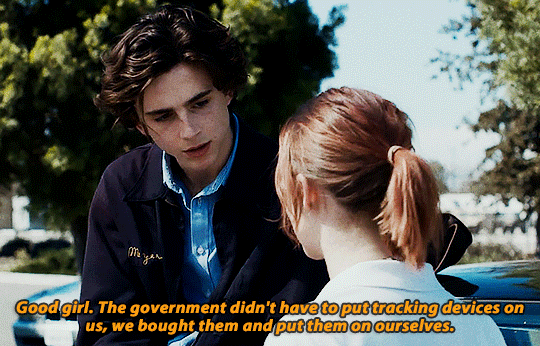
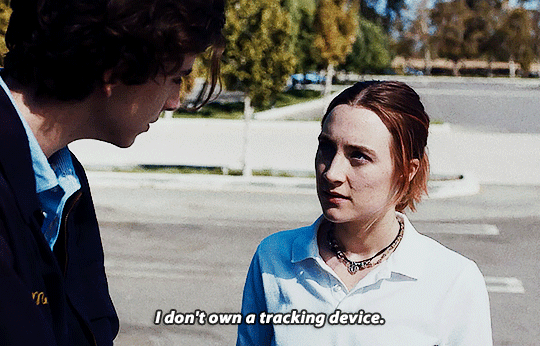
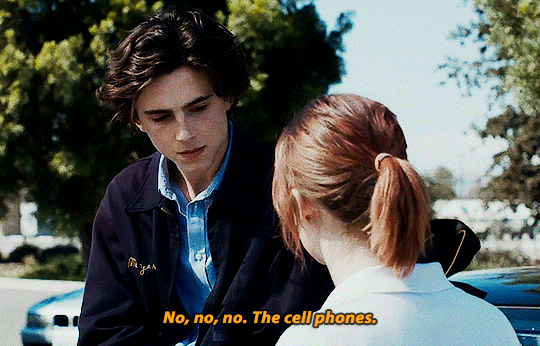

LADY BIRD (2017) dir. Greta Gerwig
242 notes
·
View notes



